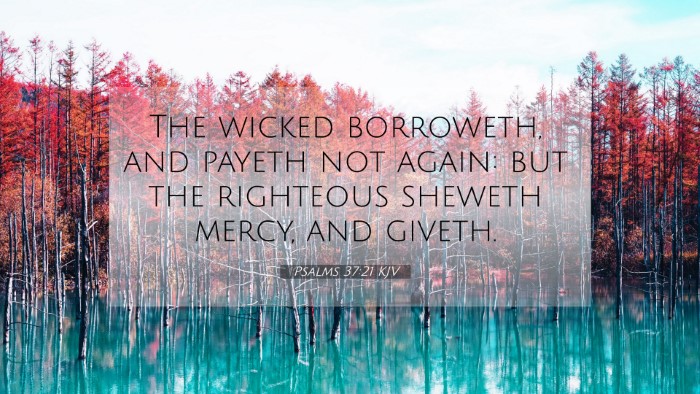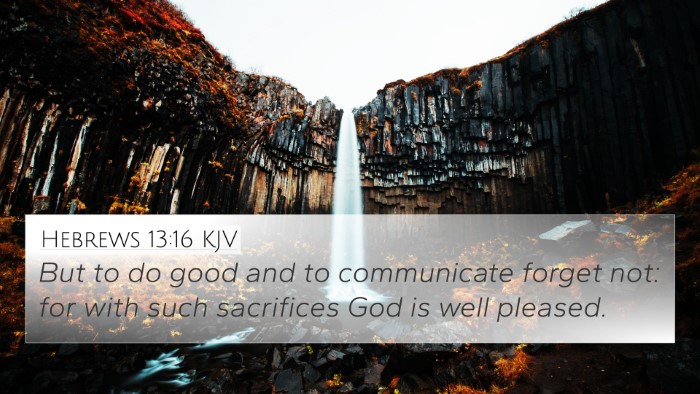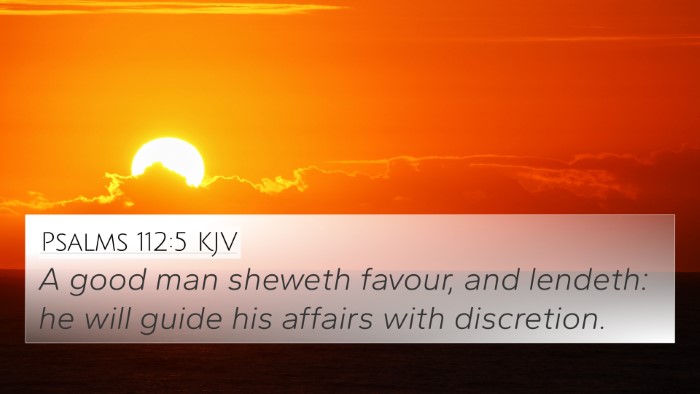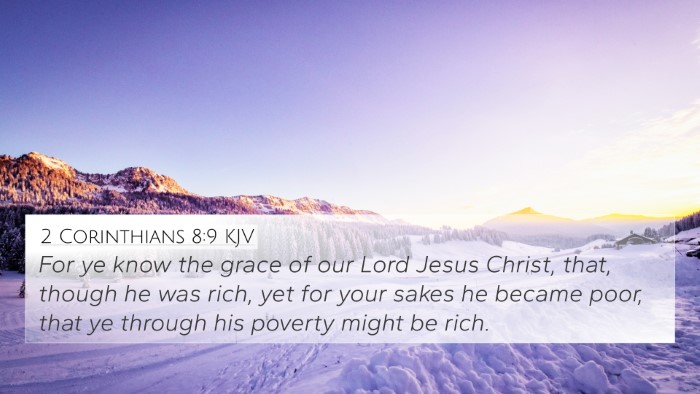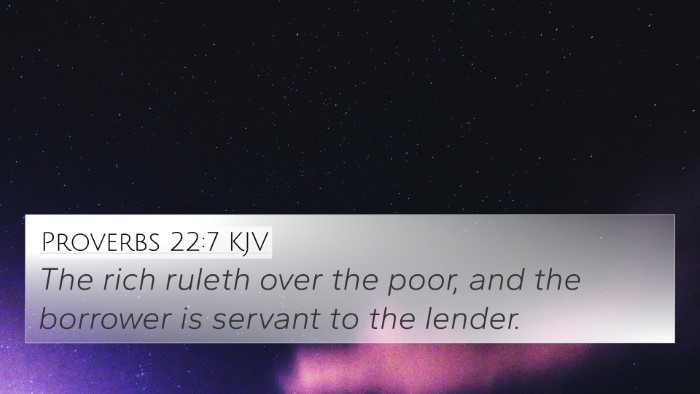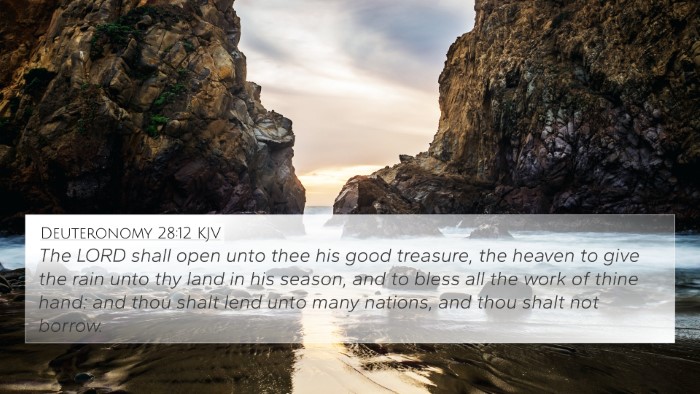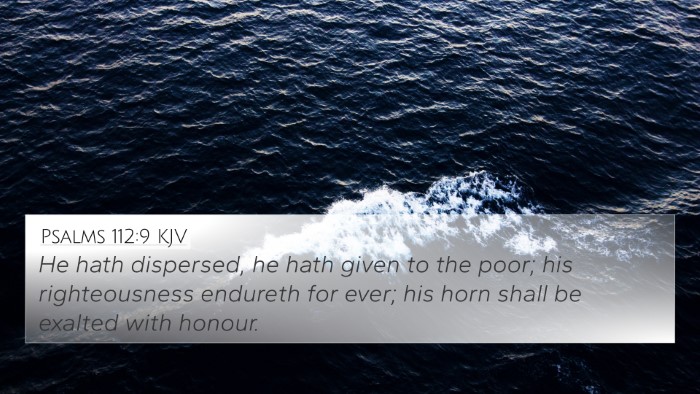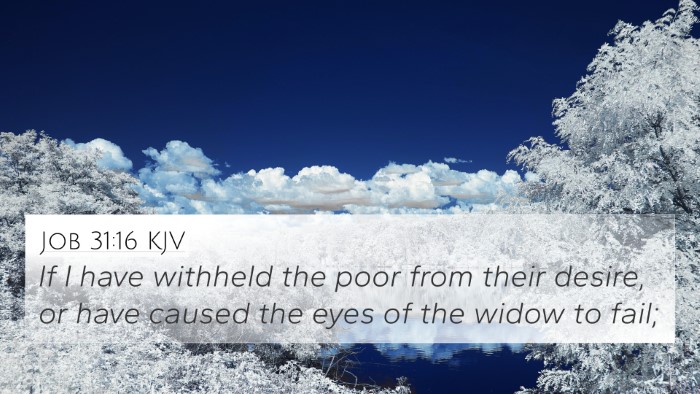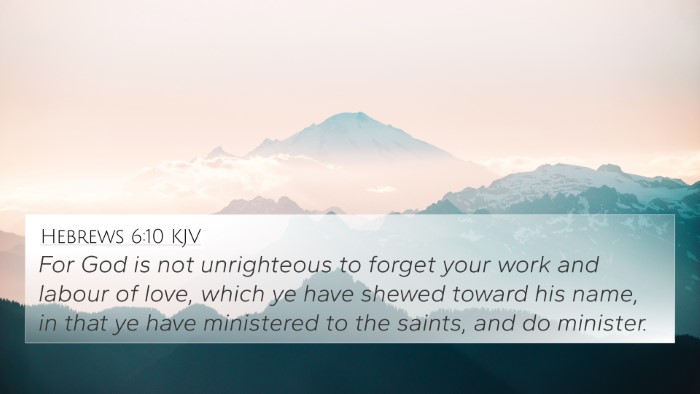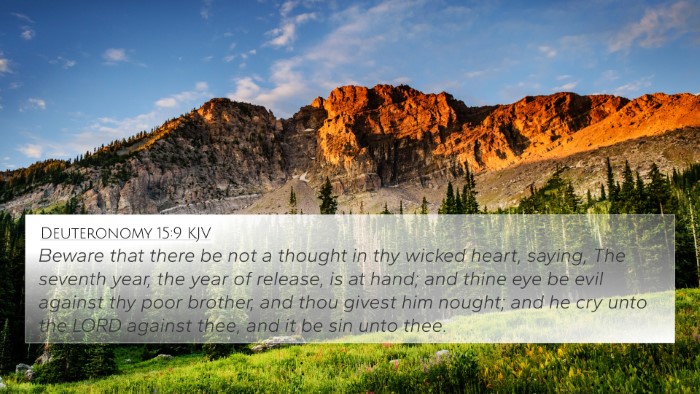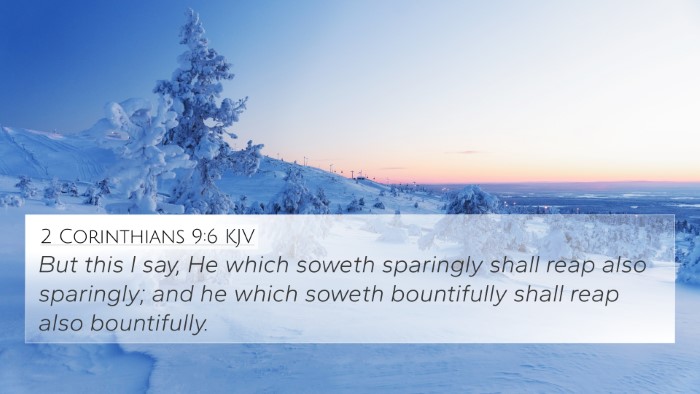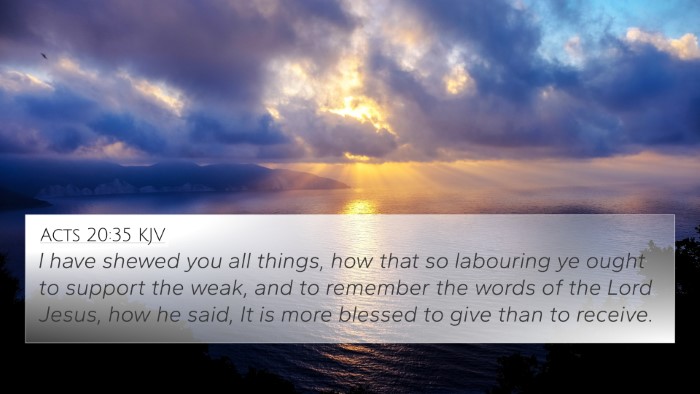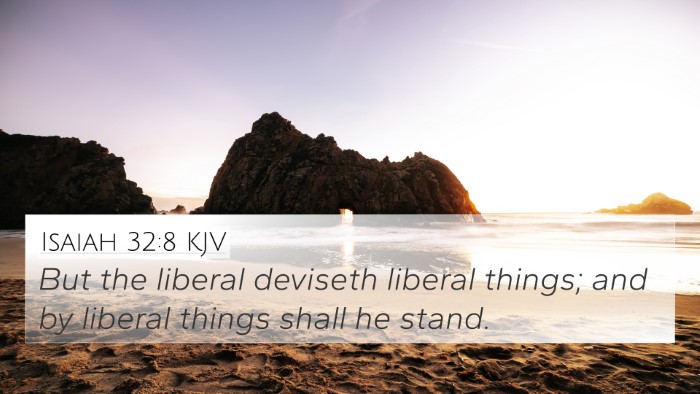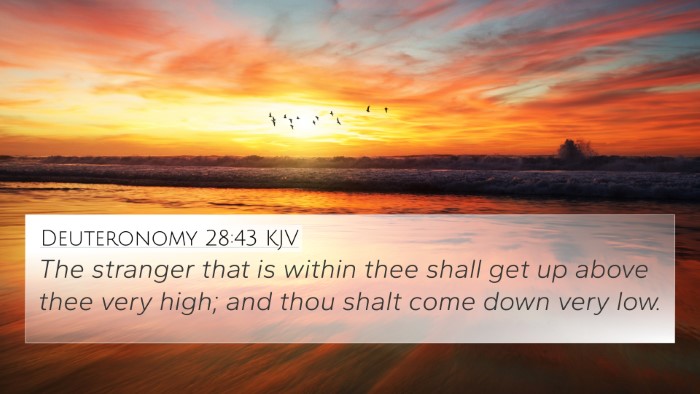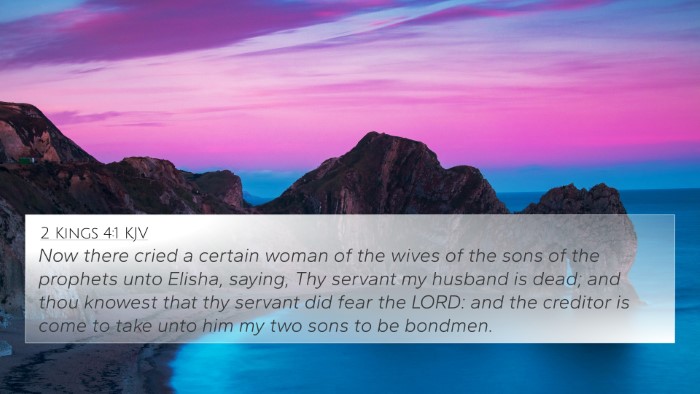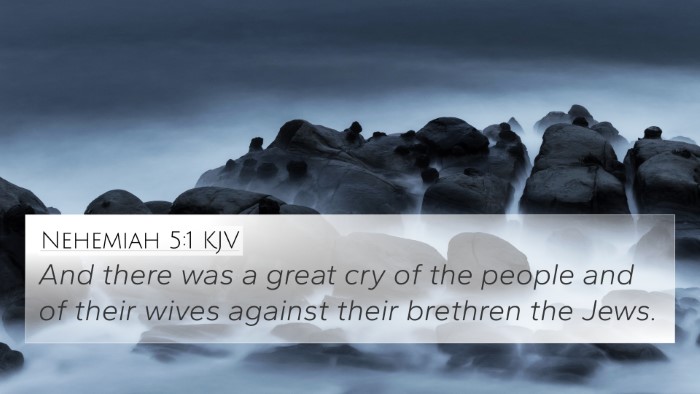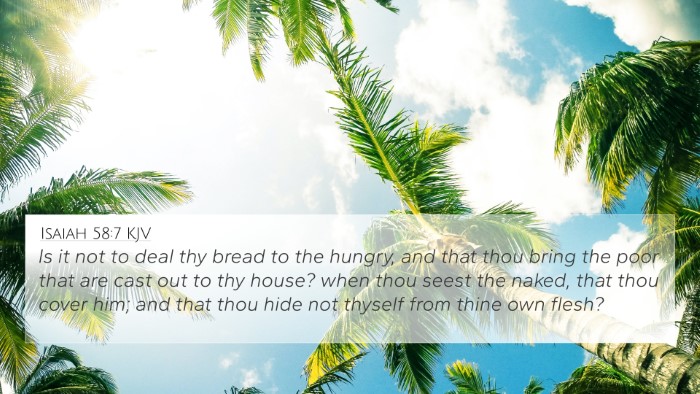Bible Verse Explanation: Psalms 37:21
Verse: "The wicked borroweth, and payeth not again: but the righteous sheweth mercy, and giveth."
Summary of Verse Meaning
This verse from Psalms highlights the contrasting behaviors between the wicked and the righteous. The wicked are characterized as borrowers who do not repay their debts, illustrating a life devoid of responsibility and integrity. In stark contrast, the righteous are depicted as merciful and generous, reflecting a life of kindness and faithfulness. This duality serves to teach the reader about the moral expectations God holds for His people.
Insights from Public Domain Commentaries
Matthew Henry's Commentary Insight:
Matthew Henry emphasizes the aspect of trustworthiness. He points out that the wicked's failure to repay signifies a deeper spiritual truth; their lives are marked by a lack of genuine commitment to God's principles. Conversely, the righteous are portrayed as those who act with benevolence, embodying God's mercy through their actions. Henry highlights that mercy is central to the nature of righteousness, as it reflects God's own character.
Albert Barnes' Commentary Insight:
Albert Barnes discusses the implications of borrowing and repayment in this verse. He indicates that borrowing without repayment leads to a cycle of injustice, where the wicked exploit others. Barnes also stresses that the act of giving, which characterizes the righteous, is rooted in the understanding that all good gifts come from God. This divine perspective on generosity fosters a community built on trust and mutual support.
Adam Clarke's Commentary Insight:
Adam Clarke provides a detailed analysis of the terms "borroweth" and "payeth not again." He interprets this as a metaphor for moral and spiritual debt, suggesting that those who lead wicked lives owe a great deal but seldom fulfill their obligations. Clarke emphasizes that the righteous do not merely give out of abundance but do so out of a heart aligned with God's will, finding joy in sharing with others.
Related Bible Cross References
- Proverbs 21:26: "He covets greedily all day long, But the righteous gives and does not spare." - This verse mirrors the generosity of the righteous.
- Luke 6:38: "Give, and it will be given to you: good measure, pressed down, shaken together, and running over will be put into your bosom." - A New Testament reflection on the principle of giving.
- Romans 12:20: "Therefore if your enemy is hungry, feed him; If he is thirsty, give him a drink." - Highlights the mercy aspect of the righteous.
- Proverbs 28:27: "He who gives to the poor will not lack, But he who hides his eyes will have many curses." - Connects the idea of charity and righteousness.
- 2 Corinthians 9:6: "But this I say: He who sows sparingly will also reap sparingly, and he who sows bountifully will also reap bountifully." - If the righteous give abundantly, they will reap abundantly.
- Matthew 5:7: "Blessed are the merciful, for they shall obtain mercy." - Directly connects mercy to righteousness.
- James 2:13: "For judgment is without mercy to the one who has shown no mercy." - Emphasizing the moral expectation of being merciful.
- Proverbs 19:17: "He who has pity on the poor lends to the Lord, And He will pay back what he has given." - Illustrates the connection between giving and divine reward.
- Psalm 37:26: "He is ever merciful, and lends; And his descendants are blessed." - Reinforcing the theme of mercy and its blessings.
Thematic Connections and Interpretations
This verse invites a deeper exploration into themes related to morality, generosity, and the dichotomy of human behavior in relation to God's will. The consistent call for mercy and righteousness throughout the Scriptures emphasizes God's character and the expected conduct of His followers.
Tools for Bible Cross-Referencing
For those seeking to delve deeper into the connections between Bible verses, there are several effective tools to utilize:
- Bible Concordance: A tool to help locate verses based on keywords.
- Bible Cross-Reference Guide: Guides that provide thematic connections across different books of the Bible.
- Cross-Reference Bible Study: Engaging with a specific passage while exploring its related themes.
- Bible Chain References: A system that shows how different verses relate to one another, enhancing understanding.
- Cross-Referencing Bible Study Methods: Techniques to study the Bible by exploring interconnections between verses.
Finding and Utilizing Cross-References
Understanding how to find cross-references in the Bible can greatly enhance one's study and interpretation of Scripture. Consider these approaches:
- Identifying Connections: Look for thematic similarities between Old and New Testament verses.
- Comparative Study: Analyze parallels between different texts, such as Gospels or letters from the Apostle Paul.
- Researching Themes: Explore cross-referenced themes throughout the Bible for comprehensive understanding.
Conclusion
Psalm 37:21 serves as a poignant reminder of the differences between the wicked and the righteous, urging readers towards a life marked by mercy and responsibility. By employing the tools of cross-referencing and understanding thematic connections, individuals can deepen their engagement with Scripture, enriching their spiritual journey and understanding of God’s word.


